Essay
Why Women’s Stories Matter
Over 15 years ago, I stumbled upon a biography of Indira Gandhi (Indira: The Life Of Indira Nehru Gandhi by Katherine Frank) in the public library of my small New England town. The book intrigued me, making me curious to read a ‘behind the curtain’ narrative of the life of India’s first female Prime Minister. This deeply researched biography impressed me and, as a result, I started paying more attention to the biography and autobiography genre.
However, biographies and autobiographies of women are few as compared to men. Those of women who acted as trailblazers even fewer. Especially if they were ‘ordinary women’. Somewhere along the way, their stories got lost. I longed to read the stories of those ordinary women.
As the years passed, I found a story that I wanted to write – a biography on the life of Anandi Joshee, India’s first female doctor, taking place in the 1880s in India and the U.S.A. The world needed to know Anandi as a vulnerable and ambitious young woman who, with great effort and against great odds, achieved something exceptional. For what she achieved was not just a medical degree. She planted the seeds for fundamental change in how Indian society viewed and treated women.
In the process of writing Radical Spirits: India’s First Woman Doctor And Her American Champions, I came to a deeper understanding of the importance of knowing our own history. Our stories are our power. Telling and knowing our stories gives us confidence and hope. By reminding us where we have been, biographies highlight what it took to get to where we are, and they show us the path forward.
After all, Anandi’s story matters. Women’s stories matter. And they ought to matter, not just to women, but to men as well.
Arc Of History
My grandmother, educated only till the fourth grade, was married at the age of 14. Being familiar with her simple homebound life, I could well imagine the internal leaps and external hurdles that Anandi would have had to master — almost 60 years before my grandmother’s time — in her quest to become a doctor. Multiple questions crowded my mind. How did Anandi learn English? Was she ostracised in America because she looked, dressed, and ate differently and because she practiced a strange religion? I had to find out more.
During my research, I realised that the contrasts between her life and mine, although separated by a century, were startling. She was married at the age of nine to a man chosen by her father; I got married in my twenties to a person of my choice. She was home-schooled by her husband since there were no schools then that admitted girls; I came of age in an India where my family prioritised my education and encouraged me to pursue a professional career.
As for my American life, unlike Anandi, I came to an America where I did not feel judged by the colour of my skin. Fearing disapproval, Anandi wore saris and remained a vegetarian even though these choices were ill-suited to the cold climate. I, on the other hand, freely chose to switch to Western clothes and adapt my diet. Unlike her, I was never pressured to convert to Christianity.
It is no surprise, then, that my quest to uncover Anandi’s story was powered by equal parts empathy and wonder. Learning her story in its fullness helped me better understand my own story—as an Indian, as an American, as an Indian in America, and as a woman.
Indian Women’s Biographies
Armed with this new appreciation, I looked for insightful stories of other notable Indian women. I found biographies of Indira Gandhi, Sarojini Naidu, Rani Laxmi-bai, and Mother Teresa. The website of Zubaan Books has books about, among others, women artists, a princess, and a political prisoner.
Marathi literature (which is the only non-English Indian literature with which I am somewhat familiar) is rich in women’s biographies and autobiographies. To give just one example, Smritichitre by Laxmi-bai Tilak was originally published in 1934. An audiobook version is available on archive.org. An English translation by Shanta Gokhale was recently published, as was a Malayalam translation by Jyotsna Ranade.
Roots And Wings: Inspiring Stories Of Indian Women In Engineering is an anthology written by Shantha Mohan. The 29 women featured in the book are some of the first women engineers in India.
The existence of these books shows that there is a hunger to tell and to know stories of remarkable Indian women. They highlight the arc of Indian women’s history and show just what it took to change attitudes and challenge orthodoxies.
Websites like Indian Women’s Museum and She The People are doing their part to draw attention to female trailblazers from all walks of life. Recently, they covered Savitribai Phule, Pandita Ramabai, and Cornelia Sorabji, among many others. But these are only one-page summaries. I, for one, would love to read deeply researched and well-sourced biographies of these women and even less well-known ones such as Tarabai Shinde and Rukhmabai Raut.
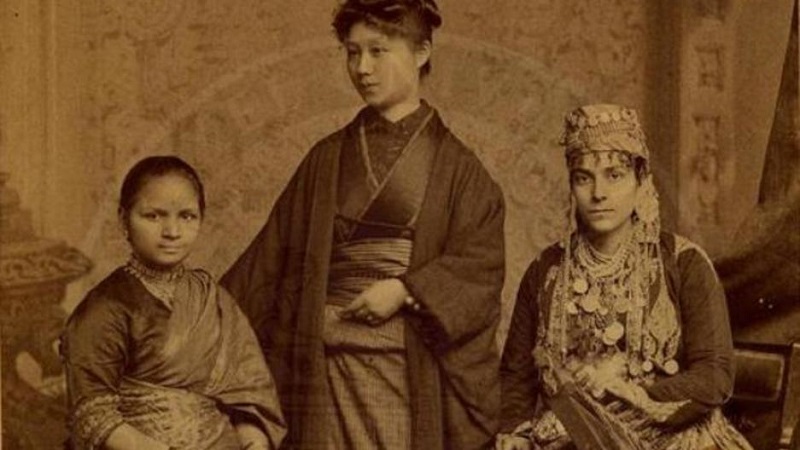
(The first female doctors from India, Japan and Syria, as students at the Women’s Medical College of Pennsylvania in 1885;
Image and Caption via PRI)
Bridging Time, Geography, And Cultures
Two years ago, I visited a girls’ hostel in a small town about three hours away from Pune. The director indicated that some of the 30-odd students, ranging from ages eight to 18, had come from such remote areas that they had never experienced electricity before. At her request, I told them Anandi’s story. The girls listened with rapt attention. After the talk was over, a few of them ran over and flopped down on the floor next to me. One girl declared: ‘Mi doctor honar!’ (I intend to become a doctor!). Her words were echoed by a few others. It was clear that they had related to the story deeply. Indeed, it had given them the courage to dream big, to imagine having the power to make a difference, and to unselfconsciously proclaim that dream to the world.
After reading Radical Spirits, my 87-year-old father told me he was reminiscing about the lives of his mother and grandmother in a new way. An American friend told me that she now understands the traditions and foibles of her Indian in-laws better. Another American friend wishes he could meet Anandi in person.
This, then, is the power of biography. A well-written biography offers readers inspiration, understanding, and connection by bridging time, geography, and culture.
Not For Women Alone
These payoffs of reading biographies, especially women’s biographies, need not be limited to women alone. In fact, as members of a group that has more agency, it is crucial that men use their power to engage with, and allow themselves to be transformed by, women’s stories.
Indeed, telling women’s stories is like winning only half the battle. The next battle is for men as well as women to advocate for women’s stories to be part of the mainstream conversation, for boys and men to know and reflect on such stories, for women’s stories to be taught in schools and colleges, for the study of women’s history to be funded and respected.
How else will boys and men know the challenges of their mothers’ and grandmothers’ lives? How else will they become more thoughtful and empathetic managers and co-workers? How will they be more supportive as husbands and fathers? Indeed, if women are awakened to their limitations, and men are left unaware, the result will be an unbalanced, unsatisfactory, at best, and incendiary, at worst, state of affairs.
I was drawn to the story that Radical Spirits tells because it is a true story of courage and determination, kindness, and generosity. My hope is that readers, especially men, will find this ‘heroine’s journey’ compelling, and that the full humanity of women with their claim to compassion and respect, their right to be educated and empowered, and their potential to contribute to society will become a national and cultural priority.

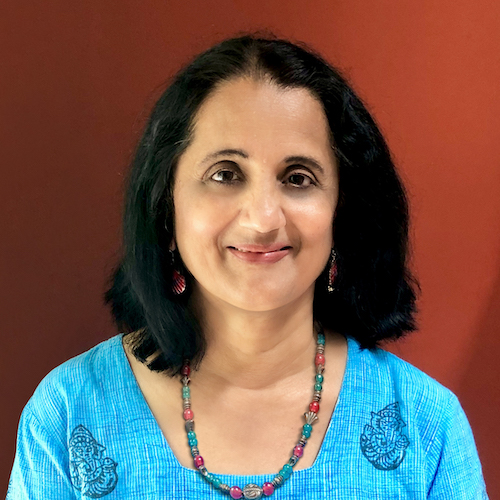
Nandini Patwardhan
Nandini Patwardhan possesses a Masters degree in Mathematics from IIT Mumbai. She lives in the United States. Her biography of Dr. Anandi-bai Joshee, titled "Radical Spirits," will be published in January 2020.
You can read her articles here.

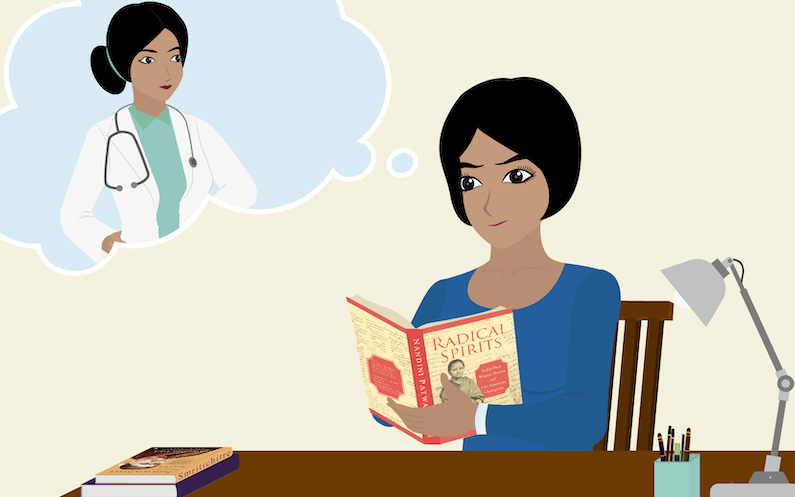
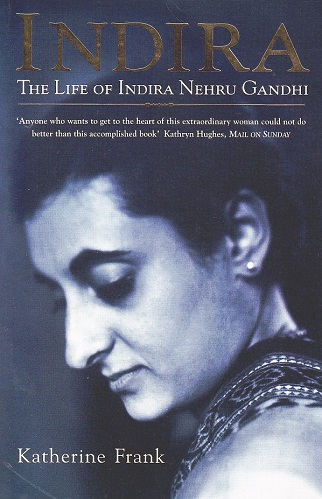
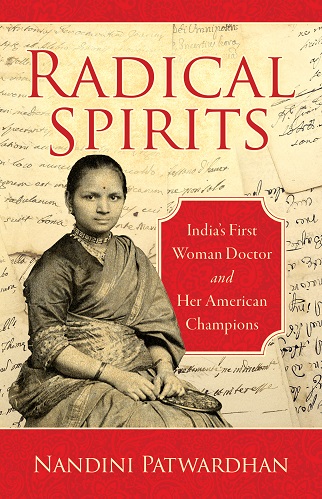
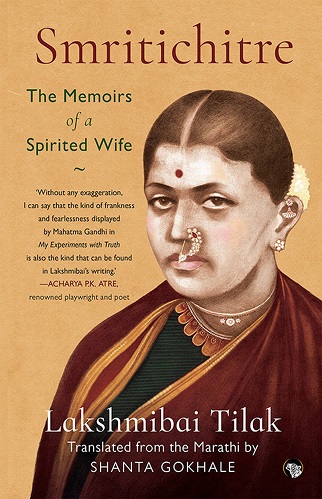
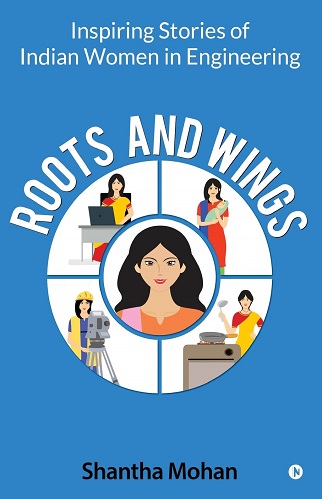

Check your inbox to confirm your subscription
We hate spam as much as you hate spoilers!